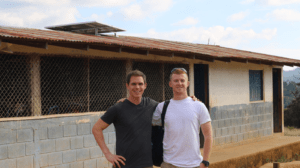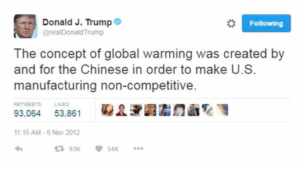
USI: Can you describe your role with the Sisterhood Communities of San Ramon? How did you get involved with them?
Larry Bleymir: It has been almost two years since I started working for Sister Communities of San Ramon (SCSRN), a non-profit organization. My current position is Coordinator of Tourism and Advertisement. Every year, we offer Eco tours to Nicaragua. These type of trips are customized to what the participants want, we offer cultural immersion for each traveler. I am the person who makes all the preparation and plans for each group that comes with us.
I am a Spanish native speaker, and I was born in Nicaragua, a Central American country. I studied English as a second language at the University of Northern Iowa in the Summer of 2011. After my return to my country I applied for a job. This is my first full time job.
By the time that I got the job, I was doing volunteer work in my community and working part time at a school teaching kids to use computers.
USI: On how many projects have you worked with USI and which one was most memorable?
Bleymir: Our first project in partnership with USI was in May 2014. Two solar systems were installed in two community centers in the town of San Ramon. Both systems were the first ones ever installed in this small town. Since then, four other systems have been installed in schools in rural communities in the county of San Ramon. All six systems have been a learning experience and have been successful.
In each installation, members and leaders of the communities, USI, and SCSRN did an amazing job.
One of my most memorable installation was at Mina Verde 2. This is a very rural community and its school has the same name as the village. The community faced the challenge to help to carry materials for the system on their shoulders, it was a 40 minute walk uphill. People were always excited and happy to know that they were going to have lights at the school. This project opened many opportunities for them. It was an extraordinary team to work with.
USI: What impact do the solar installations have on the rural communities of Nicaragua? What future do you see for the communities that you’ve helped?
Bleymir: The lives of people in these communities have been changed in many ways. Access to education has been one of the most valuable inputs to their lives. Many adults and youth in these communities do not know how to read or write, and this project has given them the opportunity to attend night classes. A lot of them quit school because they have to work in agriculture to support their families and children. Now, with access to light at night they can get some education.
Furthermore, teachers can teach a wider variety of lessons. Now, children can have dance lessons and watch movies that can teach them in a more fun way what their prior academic curriculum demands. A lot of these children do not have access to TV or to watch an educational documentary.
Many communities in the very rural areas of Nicaragua have schools as a community center as well. Usually, schools are the best infrastructures that can be found. With solar, people can gather for their activities and communal reunions.
Little by little the new generation in these communities will have access to a better lifestyle where they can have green energy as a tool for daily life.
I strongly believe that education is the only way a community or individuals can grow and improve their own lives.
USI: Why solar?
Bleymir: One of the main reasons why we go solar is because it is one of the best ways to empower communities with clean energy. Another reason is the access to some of this communities is only walking distance or a short horse ride away.
Nicaragua as a country has made some improvements on expanding its grid to power many places that did not have any source of energy, but a lot of these places have roads that make the access much easier or are also very near to towns or cities.
The communities in which the last four systems have been installed are communities that had no access to electricity at all. Some reasons are because there is a lack of roads and long distances to cities.
We also want to spread the word that solar is a great source that we as human beings can use to fulfill some or our needs.
Article: Andie Migden




